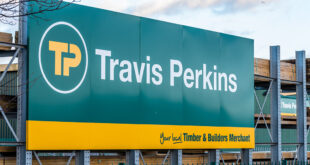According to the S&P Global / CIPS UK Construction PMI for March data UK construction output has risen again, helped by the fastest increase in new work for seven months.
That said, escalating inflationary pressures and concerns about the economic impact of the war in Ukraine contributed to a sharp drop in business optimism. And overall, the degree of confidence about the growth outlook was the weakest since October 2020.
Commercial work was the best-performing segment in March at 60.8, the third such rise in a row, although both residential work and civil engineering were down, at 54.9 and 56.3, respectively.

Total new orders expanded with the latest rise the strongest since August 2021, and the rising workloads meant a considerable rise in staffing numbers in March. Around 33% of the survey panel reported longer lead times for construction products and materials, while only 1% saw an improvement. However, delays remained less widespread than the peak seen last summer.
Concerns about the war in Ukraine, forecasts of severe cost inflation and a less favourable global economic outlook all weighed on constructors’ confidence in March. Around 48% of the survey panel expect a rise in business activity during the year ahead, while only 15% predict a decline. However, the balance of positive sentiment was the weakest seen since October 2020.
Tim Moore, Economics Director at S&P Global, said: “Commercial projects helped keep construction growth at its highest level since last summer as clients boosted spending in response to the roll back of pandemic restrictions. Civil engineering also fared well in March as work on major infrastructure contracts underpinned growth. Residential work found itself in the slow lane, however, as some firms noted that greater caution crept into spending decisions. The construction recovery looks set to continue in the near-term as order books improved at the fastest pace for seven months in March. Input buying and job creation in the sector also remained indicative of strong underlying momentum. Escalating fuel, energy and commodity prices led to the fastest rise in costs for six months. Intense inflationary pressures appear to have unnerved some construction companies. Business optimism slipped to its lowest since October 2020 on concerns that clients will cut back spending in response to rising prices and heightened economic uncertainty.”
Duncan Brock, Group Director at the Chartered Institute of Procurement & Supply, said: “A heartening result in March overall where new order levels were the highest since August last year, but not all the sub-sectors offered an equal contribution to output this month. Commercial projects were the most abundant with the strongest rise in almost a year, but residential building became the laggard of the pack as affordability concerns were a factor in holding back progress particularly in new housing and refurbishment work. The crippling rise in inflation ramped up again as transport and raw materials went up in price. Longer wait times for deliveries were reported by a third of supply chain managers. Construction companies are braced for more disruption on the horizon as a result of the Ukraine conflict. The rise in purchasing demand fed into higher costs for materials already in short supply as energy hikes also impacted on business costs.
“With these severe challenges, it is no surprise that business optimism for the months ahead has been affected and fell to levels last seen in October 2020. The sector is facing a number of roadblocks as levels of job creation were also held back with the ongoing skills shortage and lack of builders.”
 Builders Merchants Journal – BMJ Publishing to Builders Merchants and the UK merchanting industry for more than 95 years
Builders Merchants Journal – BMJ Publishing to Builders Merchants and the UK merchanting industry for more than 95 years



